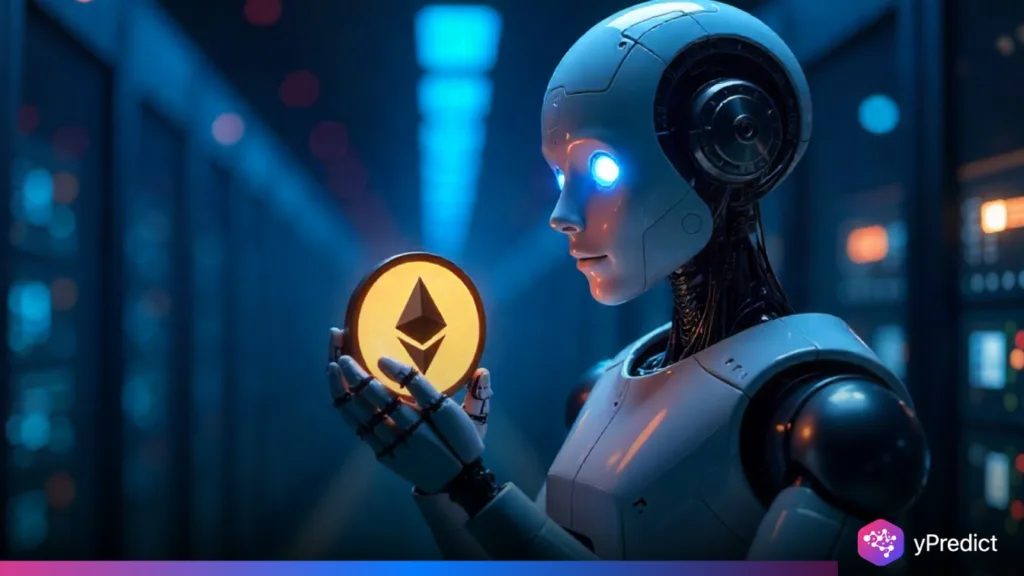
Ethereum just created its first-ever group of coders dedicated to dApps. Ethereum has now birthed its very first coders’ group formed to independently develop decentralised applications. The collective is spearheaded by core developer Davide Crapis. And its goal is to integrate AI systems into the Ethereum blockchain. In a manner that benefits from secure autonomous agents. With the coming dAI (Decentralised Artificial Intelligence) Team, developers will be able to make AI pay and take action. And also communicate with other AIs without any human intervention. The notion is to allow smart software, robots or agents to act autonomously. While continuing to benefit from Ethereum’s immutability, verifiability and global reach.
Ethereum’s Vision: Decentralized AI Stack & Reducing Centralized Control
AI is becoming fundamental to many tech ecosystems, and existing paradigms can depend on big centralised companies for compute, control and data. It’s worth noting that statement technology didn’t invent AI but laid some important groundwork. Ethereum (ETH) is pushing this initiative as AI quickly becomes a core part of a lot of tech stacks.
The dAI Team of the Ethereum Foundation plans to build a decentralized AI stack. One which is open, trust-verifiable and censorship-resistant. It would be an alternative to current proprietary AI systems. As Ethereum becomes a “preferred settlement and coordination layer for AIs and the machine economy,” it hopes to practically sidestep dependency on centralised platforms, while spreading more autonomy and trust among AI agents and developers.
Ethereum’s Immediate Goals & Challenges
For now, Ethereum is recruiting AI researchers and project managers to staff the dAI Team. The team needs to coordinate with the existing protocol and ecosystem teams. This is to ensure that AI-agent features resonate well with Ethereum’s performance, security, and developer tooling. There will be significant challenges around how we authenticate AI agents without adding an undue amount of overhead. Ethereum must also ensure ERC-8004 is battle hardened. As well as widely adopted, and capable of handling edge cases of autonomous agents coordinating value and work.
Bottom Line
What ETH is signalling by way of its aggressive march toward another two network upgrades is that it doesn’t want to be just a financial blockchain. It wants to be AI’s critical underpinning for the future. By the release of the dAI Team, Ethereum is betting that trust, identity, reputation and decentralised coordination would be key components in AI agent economies. The initiative could change the way AI agents are constructed, governed, and deployed. This makes them more interoperable, transparent, and less dependent on dominant corporations. It’s also a reminder that in the new era of artificial intelligence, blockchains such as Ethereum might have more fundamental uses than expected.






